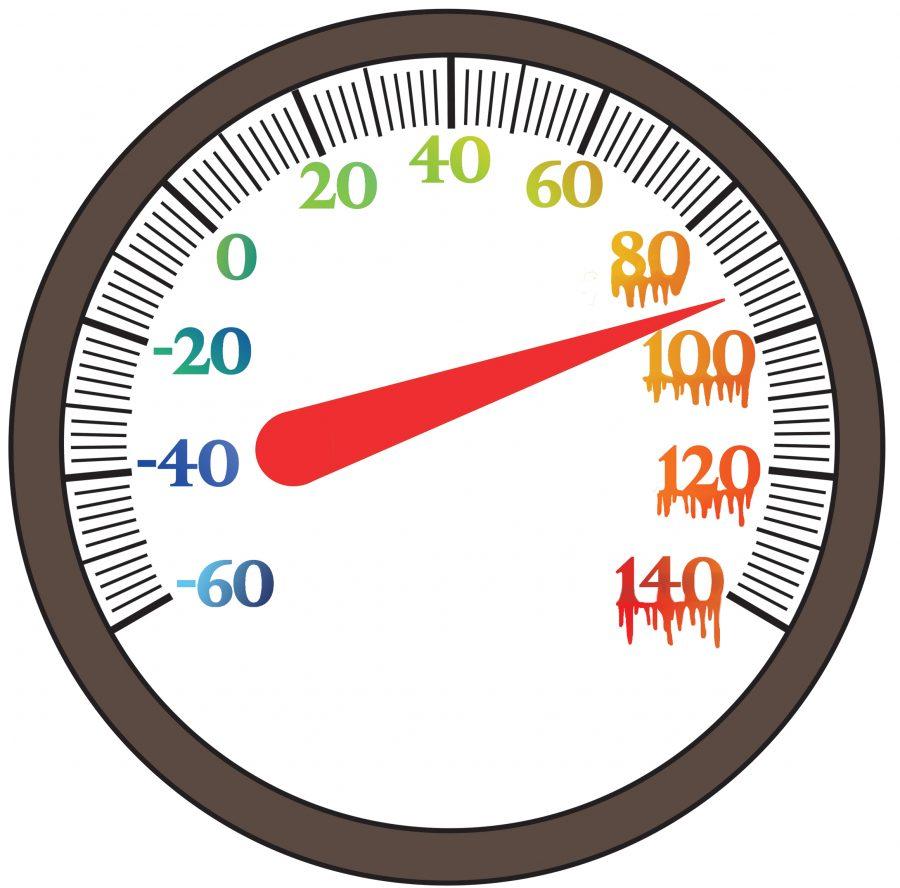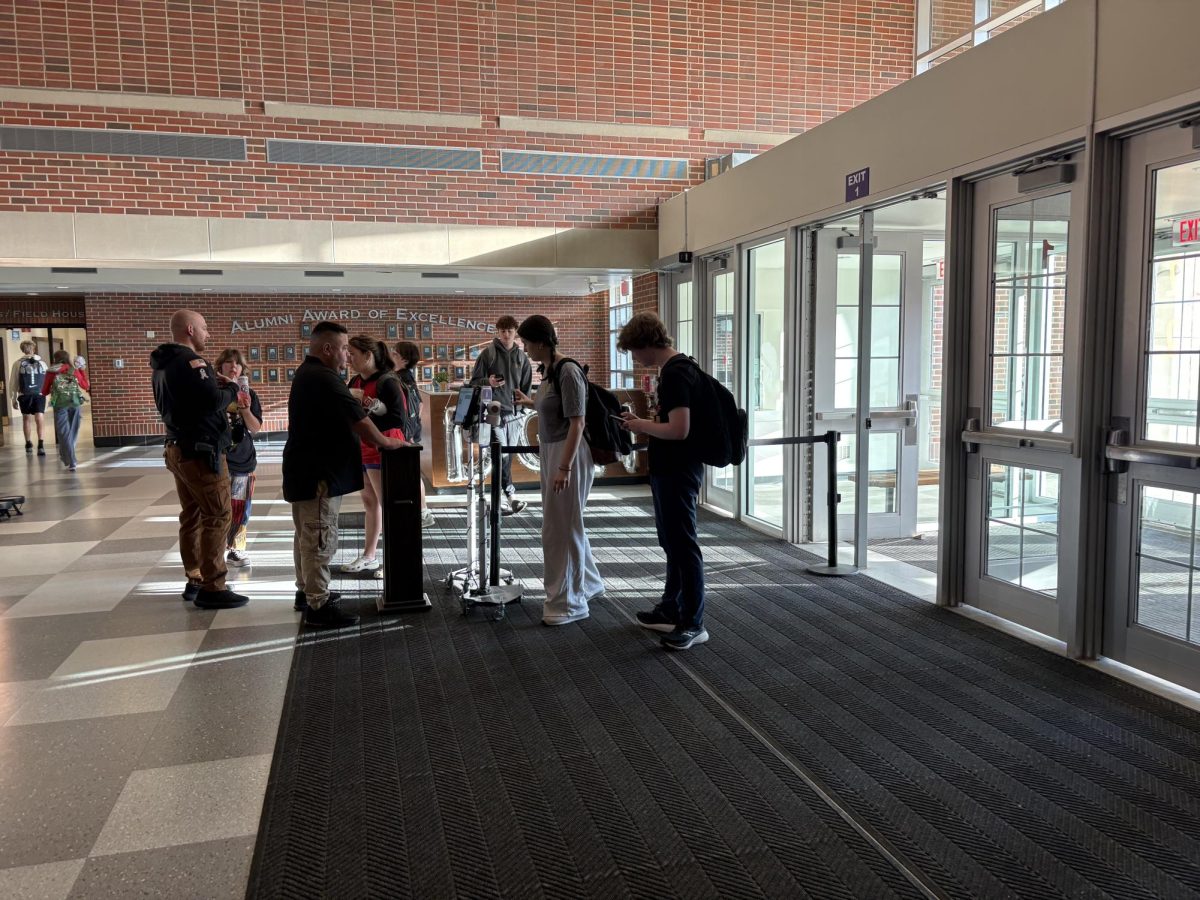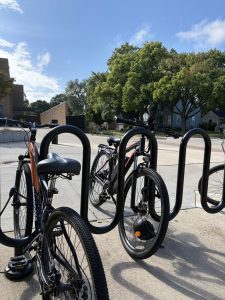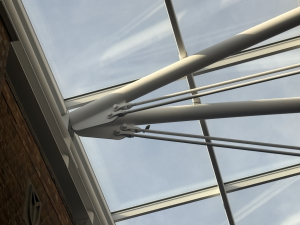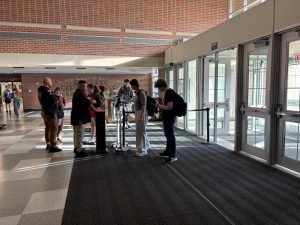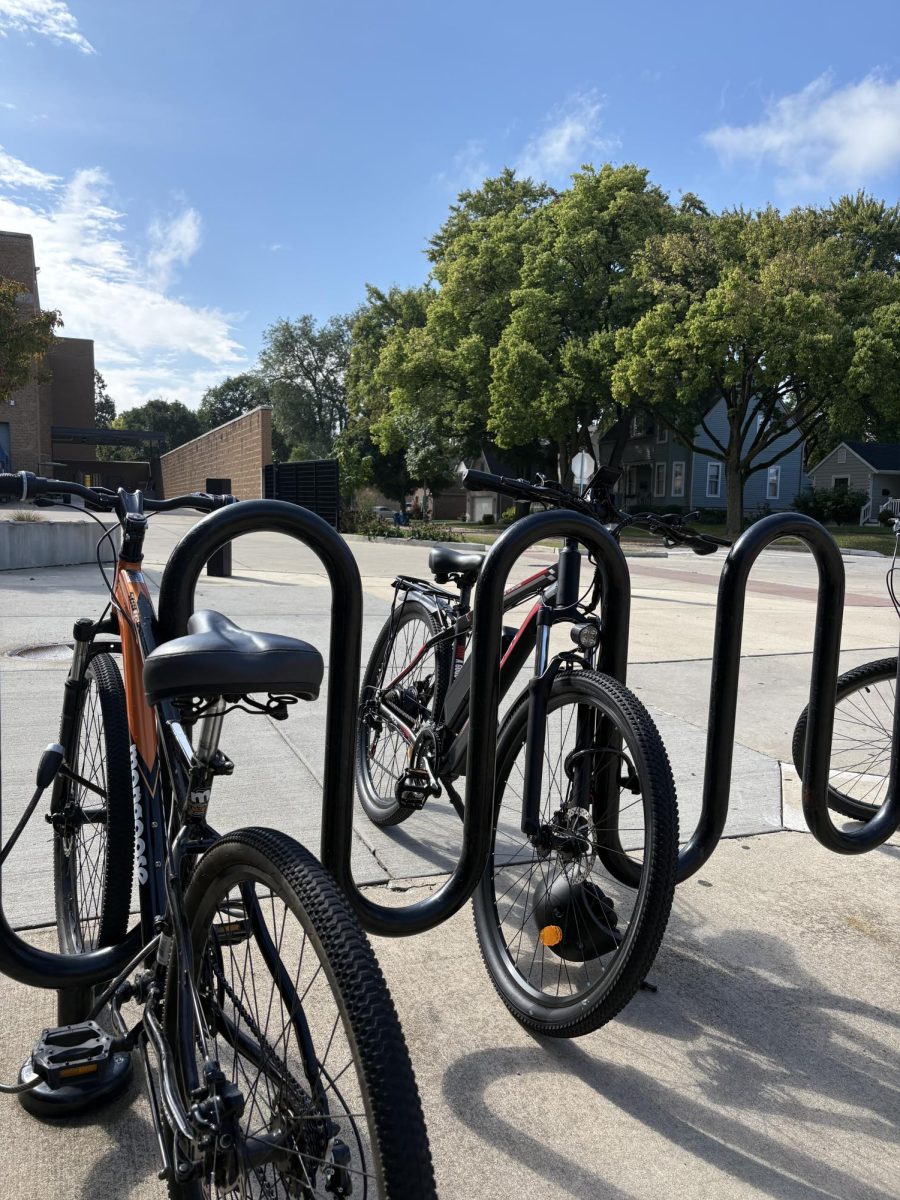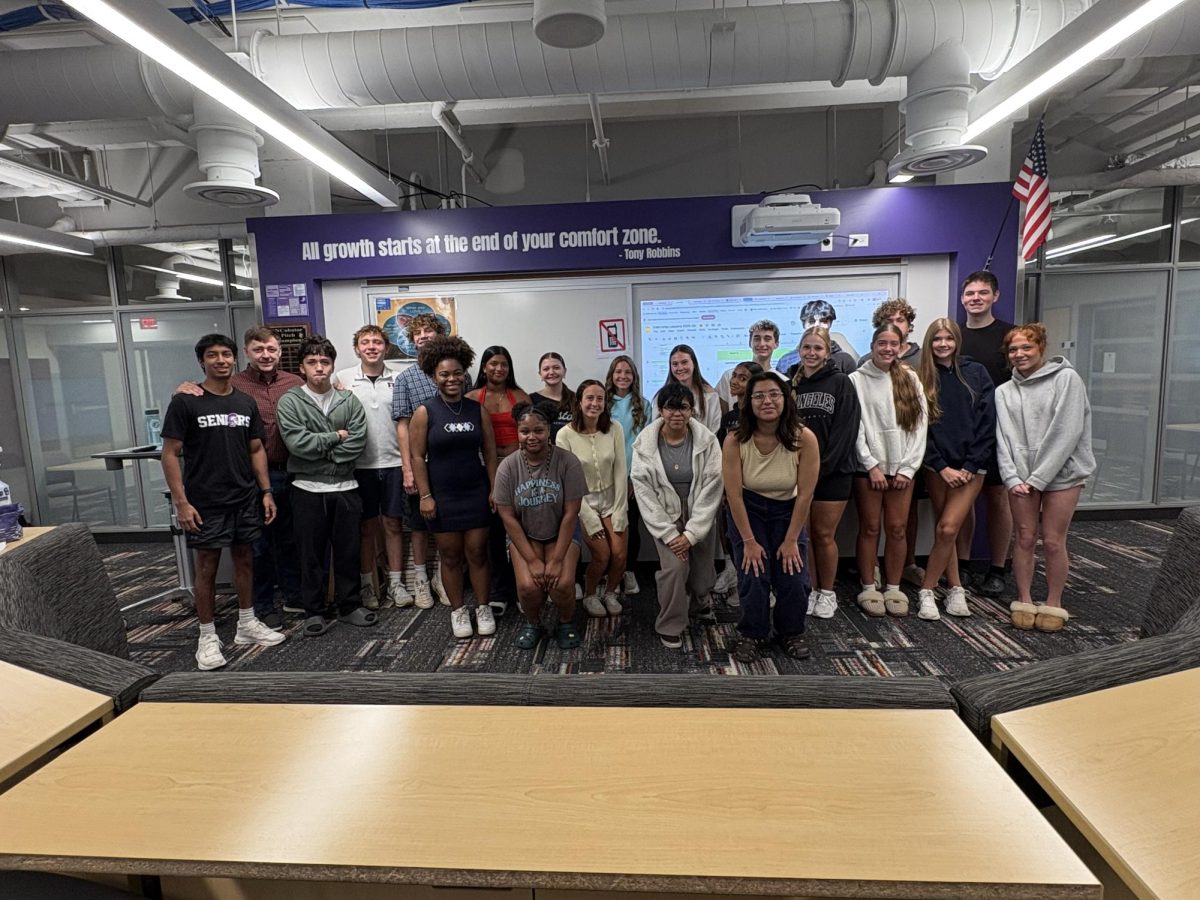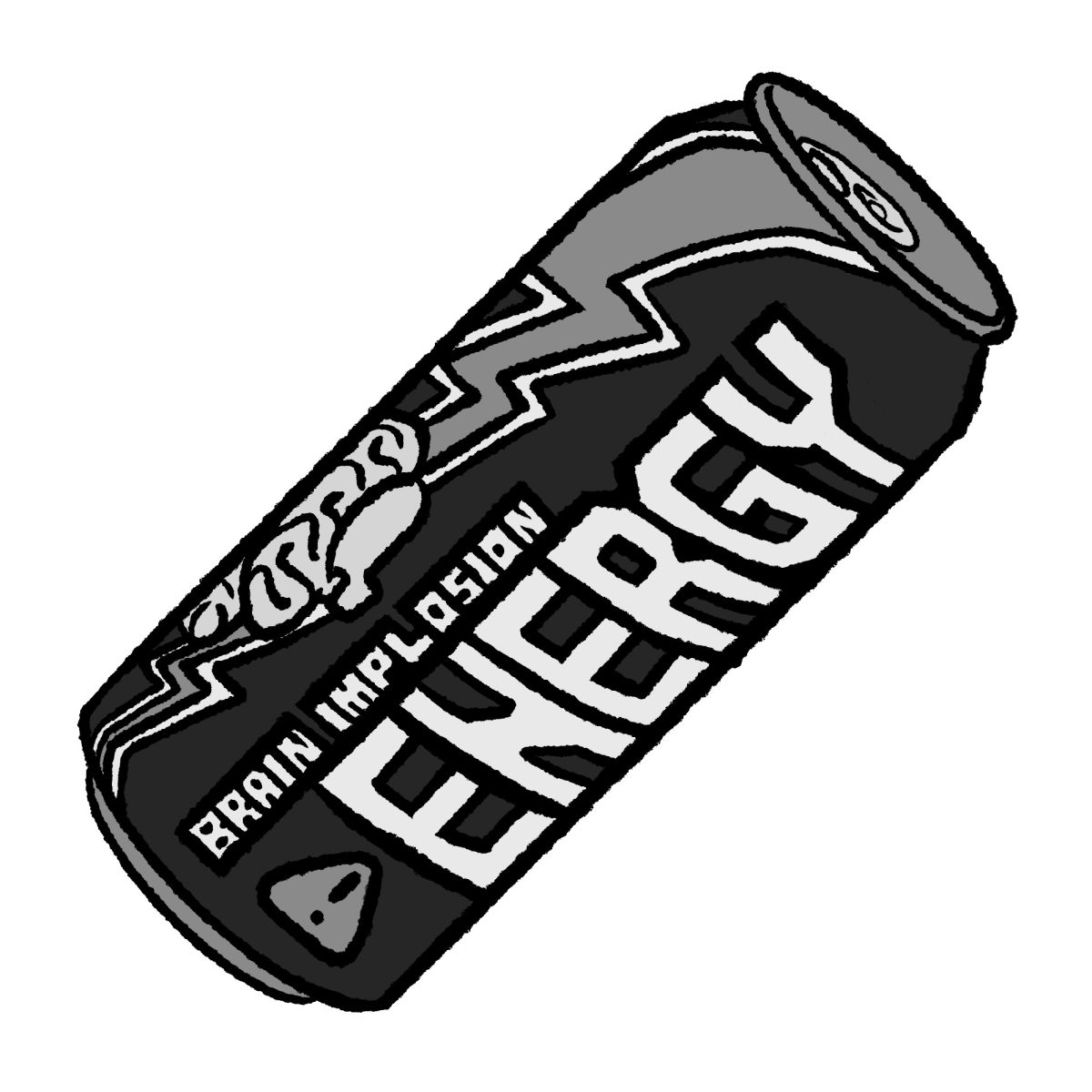BURNING UP
2017-18 calendar raises heat questions
November 15, 2016
When Nihal Isaac, mother of freshman Noah Isaac and senior Jade Isaac, spoke at the District 99 School Board meeting last year on Feb. 1, she had one goal: relieve her daughter’s winter break stress by moving final exams before break.
“Over the past three years, I have witnessed firsthand what having the semester end after winter break does to students,” Isaac said. “My daughter, Jade, spends anywhere from one-half to two-thirds of her winter break completing study guide packets for her classes in preparation for finals.”
District 99 began work last December to create an early start calendar for this upcoming school year. The result led to a five day earlier 2017-2018 calendar that bumps finals before break and cuts the school stress out of the holiday season.
However, less days in the generally mild temperatures of early June mean more days in the heat of August. Only 51% of D99 classrooms have air conditioning.
A recent Harvard study suggests that student performance lowers with the increase of heat, raising concerns of how heat will impact student performance and school function during first months of school.
The study, conducted by Harvard University PHD student Jisung Park, concluded that students who took the exam on a 90-degree day scored on average 4.5% lower than students who took the test on a 72-degree day. Also the study showed only five additional 80-degree days saw a reduced performance of seven percent of a standard deviation.
According to the website Weather Underground, this past August and September, 50% of the days hit heat indexes of 80 degrees or higher, with the average at 82.5 degrees. This means that if students had started on Aug. 18 this year, as they will next year, 22 out of the 44 days from then until the end of September would have been hot enough to decrease student performance
The Master Facility Plan, a facility improvement plan for District 99 schools, involves complete air conditioning for both DGN and DGS. However, the district has yet to choose a finalized plan or a set year for the improvements to take place. According to assistant principal Ken Sorensen, for the time being, the school will use fans and ventilation to cool the building.
According to principal Janice Schwarze, heat factored into the calendar decision and the district considered data from other districts who switched to early start calendars without air conditioning.
“Really in the end what we found was that there were few concerns, the heat being one of them, but that other schools had managed to overcome them and were happy that they did. Other schools have been on an early start calendar and not all of them had air conditioning,” Schwarze said.
Teachers’ union vice president Lois Graham questions how the lack of air conditioning will affect the school with the earlier start date.
“It’s just unacceptable for students and it’s unacceptable for faculty and staff … Almost all the other schools in the area have air conditioning and considering this is a district with only two buildings, [the district needs to] find a way to take care of it,” Graham said.
Junior Evie Brindl believes that, while the finals after break are acceptable, the heat is not.
“On hot days, it’s hard for me to stay concentrated on my work when I keep sticking to my desk. I feel really gross and distracted,” Brindl said.
Schwarze, along with multiple other faculty and staff, were part of a calendar committee that reviewed data and multiple versions of the schedule before coming to a final draft.
“This was a conversation that occurred with a lot of people over a long period of time,” principal Janice Schwarze said. “While students might be uncomfortable for those few days, the tradeoff of having those two weeks where they are not having to worry, we felt, was worth the trade off.”
In preparation for the board meeting last February, Isaac researched for information regarding the heat during mid August. She considered this information in her argument to the board.
“I thought it was very important for students to have a mental break during the two weeks of winter break to decompress and recharge,” Isaac said. “… We have had hotter days than [those in August] in September. Weather is unpredictable, yet the benefits to our students of having an early start calendar are very predictable and tangible.”
Graphic by Sophia Di Iorio


